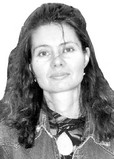Family as resource in formation and realization of healthy way of life in the elderly
Фотографии:
ˑ:
Associate Professor, PhD K.G. Serdakova1
Associate Professor, PhD N.M. Shustikova1
Associate Professor, PhD T.Y. Sadovnikova2
Postgraduate student A.D. Serdakova1, 2
1I.M. Sechenov First Moscow State Medical University (Sechenov University), Moscow
2LMSU Lomonosov Moscow State University, Moscow
Objective of the study was to identify the role of family in the formation of a healthy way of life in the elderly.
Methods and structure of the study. While generalizing medical, psychological, educational and methodological literature, we conducted a theoretical and methodological analysis of the scientific concept of "health-oriented re-socialization of the elderly" and determined its proxyological characteristics.
Study results and conclusions. The article is devoted to the problem of formation and realization of a healthy way of life in the elderly and the role of family as a resource that helps support their health. We analyzed such scientific concepts as "family", "family system", "healthy way of life", determined the essential characteristics of the health-oriented re-socialization of an individual in the elderly age and substantiated the role of family as a resource in the formation of a healthy way of life at this stage of ontogenesis. Special attention is paid to the health-oriented re-socialization of an individual as a key factor in the formation of a value-semantic attitude to health of the elderly. Based on the analysis and generalization of literature data, we proposed a scientifically substantiated definition of the concept of "man's health-oriented re-socialization in the elderly age" and proved that the family can act as an important resource in the formation and realization of a healthy way of life in the elderly.
Keywords: family, family system, family functions, elderly age, health-oriented socialization, family as resource, healthy way of life, health protection, health-oriented resocialization.
References
- Abaskalova N.P., Irkhin V.N., Madzhuga A.G. Pedagogika zdorovya: novyy etap razvitiya [Pedagogy of health: new stage of development]. Sterlitamak: Fobos publ., 2014. 242 p.
- Andreev Yu.P. Rol sotsialnykh institutov v zhizni obshchestva [Role of social institutions in society]. Obshchestvenno-politicheskiy i nauchny Rossiya. 2001. No. 1. pp. 12-18.
- Giddens E. Sotsiologiya [Sociology]. Moscow, 1999. 692 p.
- Karabanova O.A. Psikhologiya semeynykh otnosheniy i osnovy semeynogo konsultirovaniya [Psychology of family relations and basics of family counseling]. Study guide. MOSCOW: Gardariki publ., 2005. 320 p.
- Perinskaya N.A. Resotsializatsiya. Entsiklopediya gumanitarnykh nauk [Resocialization Encyclopedia of Humanities]. Znanie. Ponimanie. Umenie. 2005. No. 4. pp. 161-162.
- Sadovnikova T.Yu. Opyt empiricheskikh issledovaniy funktsionirovaniya rossiyskoy semi: sistemny podkhod [Experience of empirical studies of functioning of the Russian family: system approach]. Psikhicheskoe zdorove cheloveka i obshchestva. Aktualnye mezhdistsiplinarnye problem [Mental health of man and society. Actual interdisciplinary problems]. Scientific-practical conference. October 30, 2017. October 30 2017. Moscow. Moscow State University named after M.V. Lomonosov Collected works. Ed. G.P. Kostyuk. 2018. pp. 649-681.



 Журнал "THEORY AND PRACTICE
Журнал "THEORY AND PRACTICE